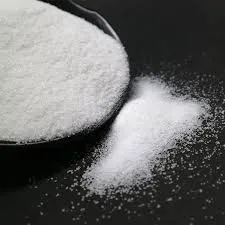Understanding RO Water Treatment Chemicals
Reverse osmosis (RO) is an essential water treatment process that effectively removes a wide range of contaminants from water. Commonly used in various industries, from food and beverage to pharmaceuticals and municipal water supply, RO systems employ a semi-permeable membrane to filter out impurities, dissolved salts, and microorganisms. While the membrane itself plays a critical role in the purification process, the effectiveness and longevity of an RO system can significantly depend on the water treatment chemicals employed throughout the process.
The Role of RO Water Treatment Chemicals
RO water treatment chemicals serve several purposes, including pretreatment, cleaning, and post-treatment of the RO membrane. Proper chemical management is vital for ensuring the efficiency of the system and maintaining water quality. Here are some key categories of these chemicals
1. Antiscalants One of the leading issues in RO systems is scaling, which occurs when dissolved salts precipitate on the membrane surface. Antiscalants are chemical agents that help prevent scale formation by interfering with the crystallization process and dispersing any forming particles. By maintaining optimal water quality and protecting the membrane, antiscalants enhance the longevity and performance of RO systems.
2. pH Adjusters The pH level of feed water can significantly impact membrane performance and scaling potential. pH adjusters, such as acids or bases, are used to modify the pH of the feed water to optimal levels, reducing the likelihood of calcium carbonate scaling and improving the solubility of other dissolved salts. By carefully balancing pH, operators can improve membrane efficiency and maximize water recovery rates.
3. Biocides Microbial growth on RO membranes can lead to biofouling, severely affecting system efficiency. Biocides are chemicals designed to kill or inhibit the growth of microorganisms, preventing biofouling. Common biocides include chlorine, bromine, and specialized anti-fouling agents. It is essential to use biocides that are compatible with RO membranes, as some can cause membrane degradation.
4. Cleaning Chemicals Over time, even the most carefully maintained RO systems can accumulate fouling materials, reducing their efficacy. Cleaning chemicals, including alkaline cleaners, acid cleaners, and surfactants, are utilized to restore membrane performance by removing organic matter, inorganic scale, and other fouling agents. Regular cleaning with appropriate chemicals is vital for ensuring the long-term reliability of the RO system.
ro water treatment chemicals

5. Corrosion Inhibitors In many instances, RO systems operate in conjunction with metal components such as pipes and pumps, which can be subject to corrosion. Corrosion inhibitors help protect these metal parts from oxidative damage, prolonging their lifespan and reducing maintenance costs. These chemicals work by forming a protective layer on the metal surfaces, preventing the direct contact of corrosive substances.
Best Practices for Using RO Water Treatment Chemicals
To maximize the effectiveness of RO water treatment chemicals, several best practices should be considered
- Monitoring and Testing Regular monitoring of feed water quality and system performance is essential for determining the appropriate chemical treatment regime. Conducting tests for pH, conductivity, and specific contaminants can help operators adjust chemical dosages effectively.
- Compatibility and Safety It is crucial to choose chemicals that are compatible with the specific RO membranes and materials used within the system. Additionally, safety measures must be taken when handling chemicals, including using personal protective equipment and following manufacturer guidelines.
- Training and Procedures Operators should be well-trained in the proper use of treatment chemicals, application methods, and emergency procedures. Well-documented protocols can guide operators in the effective management of chemicals, ensuring the RO system operates at optimal levels.
Conclusion
In summary, RO water treatment chemicals are indispensable for ensuring the efficiency and longevity of reverse osmosis systems. By carefully selecting and managing these chemicals—antiscalants, biocides, pH adjusters, cleaning agents, and corrosion inhibitors—operators can enhance the performance of their water treatment systems while ensuring the highest quality of purified water. As the demand for clean water continues to rise globally, understanding and effectively utilizing RO water treatment chemicals will play a pivotal role in meeting this vital need.

